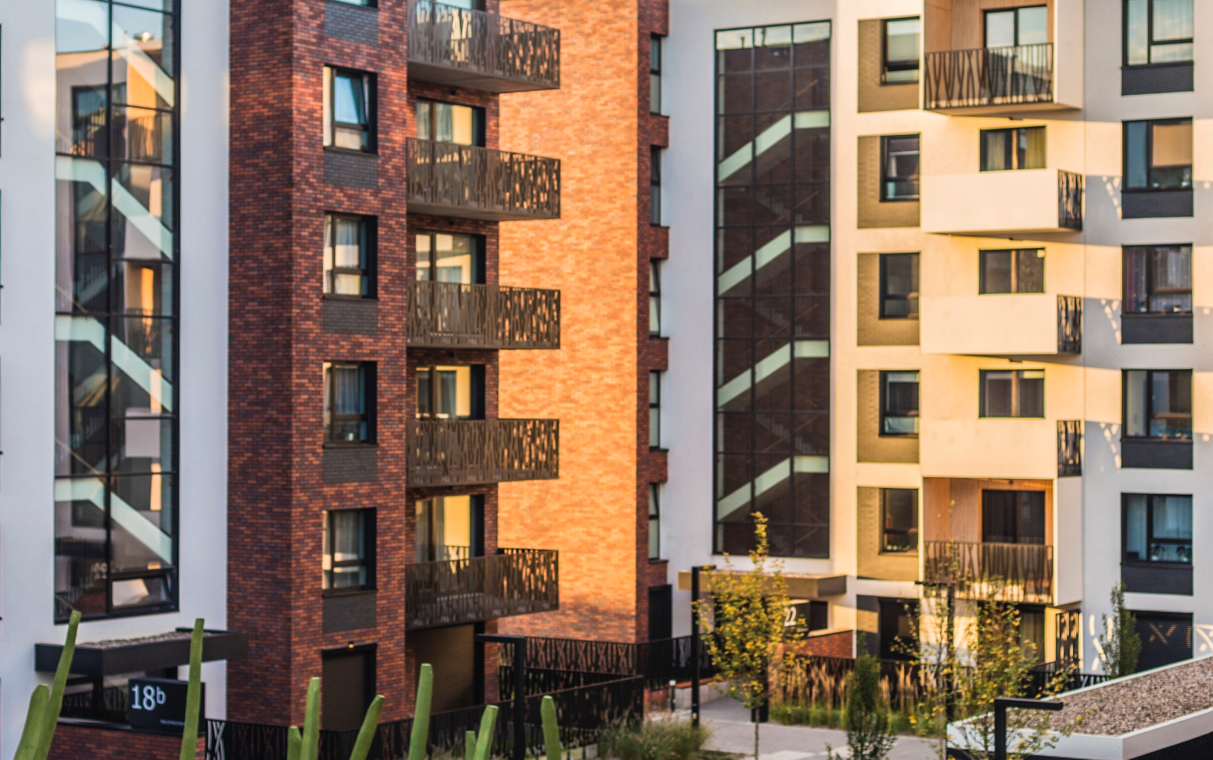Leaving your home behind and moving to a seniors’ residence is a big change that takes getting used to; here are some tips for a smooth adjustment and a happy future
By Marie-Josée Roy
Moving to a seniors’ residence is a major transition that will affect every area of your daily life, and like other big changes, it can bring with it stress and anxiety. “I find that people are often afraid when they’re moving into a residence,” says Claudine Blier, a therapist and residence counsellor at Visavie, a network of senior-living advisors in Ontario and Quebec. “Most of the time, they have no points of reference in the residence, and they worry about losing their relationships, their friends, and the activities they’re used to.”
A new lifestyle upends our routine, and adjusting can take effort. “The new environment inevitably means changes to habits and schedules,” psychologist Pierre Faubert points out. Often, however, all that’s needed to begin this new life is proper preparation and a positive frame of mind. Here are some steps to help you get there.
Accept How You Feel
It’s completely normal to be emotional during a move to a residence, Faubert says. “You shouldn’t demonize the anxiety and the stress. Feeling anxious isn’t necessarily a bad thing: it’s a way of getting used to change.”
As you age, your body’s response to stress changes; stress can cause not only fatigue but also mild attention and memory issues. These reactions are to be expected, according to Geneviève
Gagnon, a neuropsychologist and researcher at the McGill University Research Centre for Studies in Aging. “It’s typical for a move to cause you to feel that you’ve lost control—there are a lot of unknowns,” she says. “You have to acknowledge that your emotions and reactions are normal.” Admitting at the outset that the transition is stressful will make it easier for you to express how you’re feeling and discuss things with your loved ones.
Befriend the Unknown
Visiting your future residence a few days before the move can be calming and reassuring. “I always tell people to call me if they’re feeling worried or nervous,” says Marie-Claude Bourque, director of Résidence Sainte- Jeanne-D’Arc in Sherbrooke, Que. “They shouldn’t sit at home worrying and wondering. They can come and see the space again and get more familiar with their new home.”
“A new situation that involves the unknown almost always creates anxiety,” Faubert says. “What reduces anxiety is gradually becoming familiar with the change.”
Ask for Support
Talking about this new stage of life with loved ones is an excellent way to demystify it and gives you a chance to express any concerns. “When you’re facing a new and possibly scary reality, it’s better not to be alone,” Faubert says. “If you have meaningful relationships with people you love, the transition will be much easier.” If you’re more introverted or you’re alone, a few meetings with a qualified psychologist can allow you to express all these emotions freely and privately. “You don’t need to commit to long-term therapy,” Gagnon says. “Two or three sessions can do you a world of good.”
Start Fresh
A move is the perfect opportunity to get your house in order, especially if you’re leaving a home or large apartment for a smaller space. You can downsize, but if your budget allows, you might also buy some new furniture or decorative pieces that make you happy. Don’t hesitate to ask your loved ones for help packing the treasures you’ve decided to keep and organizing the logistical details of the move. Support from the people around you is key to easing the transition.
“If needed, there are relocation services that can support you,” Blier says. “Advisors visit the person’s old and new homes to help them make decisions.” Once the move is done, all you need to do is settle into your new living space.
Make It Yours
Although the common spaces in residences tend to have a more neutral vibe, tenants have the freedom to decorate their own place as they see fit. “We rent them an apartment, but they can dress it up the way they want—it’s their home,” Bourque explains. “Some people bring their own things, while others like to buy new things. It depends on their tastes.”
Having objects you love around you also helps you to develop a sense of belonging more easily. “Bring items that have meaning, that were there at important moments in your life—such as a camera that doesn’t work anymore but that you used to take pictures of your children or your travels,” Faubert suggests. “When possible, your family can prepare the space before you arrive.”
Take the Time to Rest
“Any change is tiring, but when you’re young, you don’t think about it,” Faubert says. “Adapting in the face of the unknown uses a lot of energy—not just physical but also emotional energy.” In the first few weeks after the move, it’s important to be kind to yourself and rest when you need to so you can start fresh.
Some people find they have a sudden need for solitude, and this is perfectly normal, Gagnon says, adding that the feeling usually goes away on its own after a while. When it does, you can start meeting your new neighbours.
Come Out of Your Shell
Whether you’re seven or 77, meeting new people can be intimidating, but a busy social life is one of the benefits of moving to a residence, and getting past any shyness can bring enormous benefits. “It’s like using new muscles—it hurts a bit at first,” Faubert says. “Adjusting to new people may seem hard at the beginning, but you’ll meet some great people.”
Blier suggests showing that you’re open to meeting people. “Go to the hair salon, for example,” she says. “Whatever activity you choose, remember that people who have been living there for a while have already been through what you’re going through.” Being open to other people is a good way to break the ice. “And residents often help new people to become part of the group,” Bourque says. “Sometimes a neighbour will invite a shyer person to come and eat in the dining room.”
Create a Routine
Any change in routine involves an adjustment, but most residences offer a host of activities that help people create new habits. “Residences put together the activity schedule to meet everyone’s needs, to suit everyone’s interests, and they’re open to suggestions,” Blier says.
“To avoid becoming isolated, you need to get out of your apartment and enjoy the activities and facilities.” Creating an enjoyable routine that suits you is a first step toward the quality of life you’re hoping for in a residence. “At the beginning, it may feel awkward, but that won’t always be the case,” Gagnon says. “You need to make an effort to become more comfortable.”
Start a Project
Moving to a seniors’ residence may feel like the end of an era, but it’s also the beginning of a new life. It’s not a matter of letting go of the things you love to do; once you’re free of domestic tasks, you have lots of time to discover new hobbies and start projects. “We all need projects,” Faubert says. “A project gives us hope; it’s something ongoing. It might be volunteering or travelling. You can also start painting, take photos, learn a new language, or take a pottery class.” The possibilities are endless. All you have to do is choose—and you can always switch to something else if your interests change.
Speak Up
Is your neighbour’s TV too loud? Do you want a certain activity added to the schedule? Are you feeling physically or mentally unwell—or just down? Whatever is on your mind, it’s best to mention it right away to a family member, a staff member, or the residence manager, who can address the problem as needed or offer solutions.
“When people sign the lease, I tell them that my door is always open, that they can call me anytime,” Bourque says. “Sometimes people are reluctant to speak up because they don’t want to be a bother, but that’s what the staff is there for.” If the concern persists, don’t hesitate to raise it again. “Your well-being is essential,” Blier says.
Photo by Isaac Quesada on Unsplash






